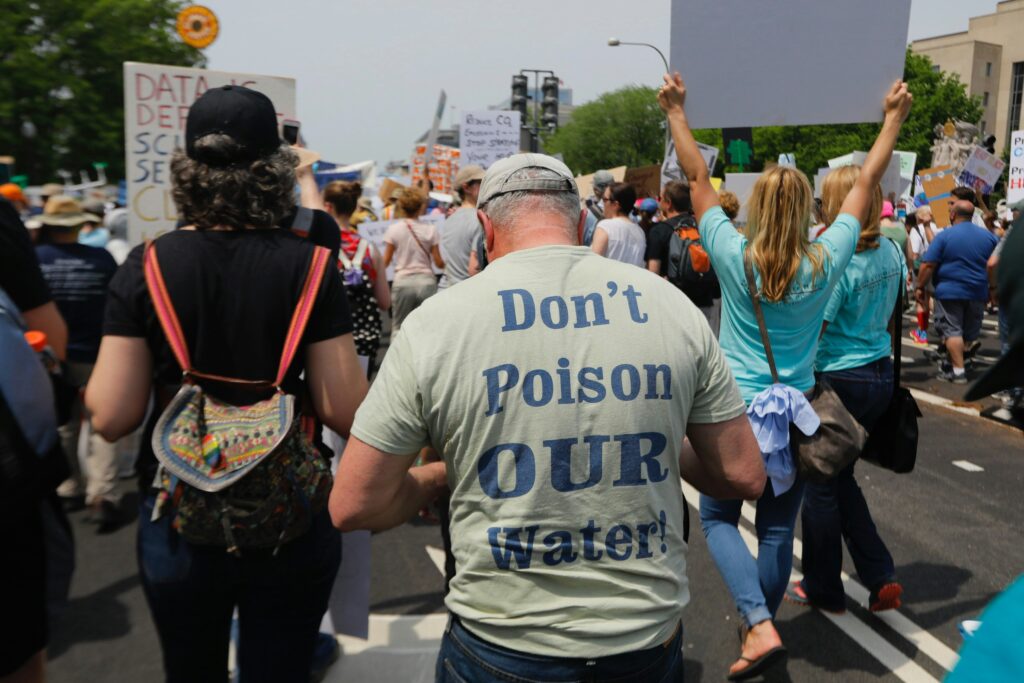Emotional experiences are integral to human life, influencing our actions, relationships, and well-being. However, men and women often process and respond to emotions differently. I have often observed how men react to a feeling and how women’s responses to the same situation are very different.
Be it the intensity, complexity and layers of processing or communicating, the emotions are so different. When I discussed with my friends and relatives their ways of communication, how they process emotions, their methods of conveying their feelings and what they prefer to talk about with their partners, I was able to understand that men communicate to convey information, solving a problem with facts and logic. Women, on the other hand, speak to build and maintain relationships and get excited about discussing creative ideas. What I have been more curious about is how men the very next day of an argument or emotional unrest, can reset while we women want to have the conflicts resolved to the T before we move on to the next topic. Else everything starts to build up leading to an emotional outburst or emotional withdrawal.
This article explores the distinctions in emotional cycles, focusing on why men often seem to reset emotionally within 24 hours while women may endure prolonged emotional responses. We will delve into the scientific reasons behind these differences.
I have observed how my friends, relatives both men and women, and even myself, have reacted to the same situations differently, while there is an overall pattern that the majority of women and men adhere to in these scenarios. Below are a few scenarios and the reactions that I have observed.
Work Stress: A man and a woman both experience a stressful day at work. The man might cope by exercising or engaging in a hobby, helping him to reset emotionally by the next morning. In contrast, the woman might continue to dwell on work-related stress, discussing it with friends or family, and experiencing lingering emotional effects.
Relationship Conflict: In a relationship conflict, men might prefer to address the issue directly and move on, leading to a quicker emotional reset. Women, however, might engage in deeper emotional processing, seeking to understand and discuss the underlying issues, which can prolong their emotional response.
Hormonal Influences on Emotional Cycles:
Male Hormonal Cycle: Men’s hormonal cycles are relatively stable compared to women’s, with testosterone being the primary hormone influencing emotional regulation. Testosterone levels peak in the morning and gradually decline throughout the day, creating a consistent daily rhythm.
- Testosterone: This hormone is associated with traits such as aggression, competitiveness, and assertiveness. Stable testosterone levels help maintain emotional equilibrium, allowing men to process and recover from emotional disturbances more quickly.
- Cortisol: The stress hormone cortisol follows a daily cycle, peaking in the morning and decreasing by evening, which also contributes to the ability to reset emotionally.
Testosterone affects brain regions involved in emotion regulation, such as the amygdala and prefrontal cortex. Higher testosterone levels can lead to more assertive and less emotionally expressive behaviours.

Female Hormonal Cycle: Women’s hormonal cycles are more complex due to the menstrual cycle, which typically spans about 28 days and involves significant fluctuations in estrogen and progesterone levels.
- Estrogen and Progesterone: These hormones fluctuate throughout the menstrual cycle, significantly impacting mood and emotional responses. A study published in Psychoneuroendocrinology found that fluctuations in estrogen and progesterone significantly affect mood and emotional regulation in women.
- Follicular Phase: Rising estrogen levels can enhance mood and energy.
- Ovulation: Peak estrogen levels during ovulation can lead to increased feelings of well-being and sociability.
- Luteal Phase: Progesterone dominates in this phase, often leading to mood swings, irritability, and emotional sensitivity. Pre-menstrual syndrome (PMS) can cause significant emotional distress during this phase.
Estrogen and progesterone influence neurotransmitter systems such as serotonin and dopamine, which are critical for mood regulation. These hormonal effects on the brain can lead to more pronounced and prolonged emotional responses in women.
While the hormonal influences on the emotional cycle play a major role we see people terming women as overthinkers who soak themselves into the why, how, and why not of the events and that is because of the differences in the emotional reset mechanisms between men and women.
Men’s Emotional Reset: Men are often perceived to reset emotionally mostly within a day or a short time. Several factors contribute to this ability:
- Hormonal Stability: The relatively stable daily cycle of testosterone and cortisol allows men to recover from emotional disturbances more quickly.
- Emotional Regulation Strategies: Men are more likely to use problem-focused coping strategies, which involve addressing the cause of distress directly. This approach can lead to quicker resolution of emotional issues. Research in the ‘Journal of Personality and Social Psychology’ highlights that men tend to use problem-focused coping strategies more frequently, leading to quicker emotional recovery compared to women who may use emotion-focused strategies.
- Socialization and Expression: Cultural norms often encourage men to suppress or control their emotional expression, leading to a quicker outward appearance of emotional recovery.
The quicker reset by men leads to :
- Quick conflict resolution
- Reduced emotional expression
- Greater focus on problem-solving
Women’s Prolonged Emotional Response: Women tend to experience more prolonged emotional responses due to several factors:
- Hormonal Fluctuations: The menstrual cycle causes significant hormonal changes that can prolong emotional disturbances. For instance, PMS and premenstrual dysphoric disorder (PMDD) can lead to extended periods of emotional distress.
- Rumination (a deep thought about something): Women are more likely to engage in rumination, a relative process involving repetitive focus on negative emotions and experiences. This can cause and prolong emotional distress. A study in the ‘Journal of Abnormal Psychology’ reported that women’s tendency to ruminate is linked to higher rates of depression and prolonged emotional distress.
- Social and Relational Focus: Women often prioritize relationships and social connections, making them more sensitive to interpersonal issues. Emotional conflicts within relationships can lead to extended emotional processing.
Women’s prolonged emotional responses can result in:
- Increased emotional expression
- Greater emphasis on relationship maintenance
- Higher vulnerability to mood disorders such as anxiety and depression
While we have higher Expectations of the other Genders, it is important to create our own Coping Strategies. For women, understanding the hormonal and psychological factors influencing their emotional responses can help them develop effective coping strategies:

- Mindfulness and Meditation: Techniques that reduce rumination and promote emotional regulation.
- Healthy Lifestyle: Regular exercise, a balanced diet, and sufficient sleep to support hormonal balance.
- Support Systems**: Building strong social networks for emotional support.
For men, recognizing the importance of emotional expression and seeking support when needed will help as well for both themselves and from a relationship perspective:
- Emotional Awareness: Developing greater awareness of their emotions and how to express them constructively.
- Healthy Coping Mechanisms: Engaging in activities that promote emotional well-being and reduce stress.
In conclusion, the differences in emotional cycles between men and women are deeply rooted in hormonal and neurological factors. Men’s relatively stable hormonal profiles and problem-focused coping strategies contribute to their ability to reset emotionally. In contrast, women’s complex hormonal cycles, tendency to ruminate, and focus on relationships often lead to prolonged emotional responses. By understanding these differences, both genders can develop better-coping strategies and support systems to manage emotional health effectively.
References
- Sapolsky, Robert M. “Testosterone and Aggression.” Science.
- Nolen-Hoeksema, Susan, and Lori M. Morrow. “A Prospective Study of Depression and Posttraumatic Stress Symptoms After a Natural Disaster: The 1989 Loma Prieta Earthquake.” Journal of Personality and Social Psychology.
- Kiecolt-Glaser, Janice K., et al. “Marriage and Health: His and Hers.” Psychological Bulletin.
- Rubinow, David R., and Peter J. Schmidt. “Androgens, Brain, and Behavior.” American Journal of Psychiatry.
- Albert, Kim M., and Wendy M. Kring. “Hormones and Emotion Regulation: The Role of Estrogen and Progesterone.” Emotion Review.
- Marija Kundakovic and Devin Rocks “Sex hormone fluctuation and increased female risk for depression and anxiety disorders: from clinical evidence to molecular mechanisms”
- Qiong Wu, Natasha Slesnick, and Jing Zhang “Understanding the Role of Emotion-Oriented Coping in Women’s Motivation for Change”.
- Daniel P. Johnson and Mark A. Whismana “Gender differences in rumination: A meta-analysis”.
About the author
Kavitha Pandian

Kavitha Pandian is working in an IT company in the USA as a practice manager. She runs many initiatives including the Save Tamilnadu Farmer, Our Village Our Responsibility, and Adopt a Village and extends financial support and scholarship to underprivileged children for education, and betterment of rural life and has supported the people of Tamil Nadu during major natural disasters including Gaja and Covid. She has received many awards including ‘The Women Achievers Award’ by FeTNA, USA, in 2022. She also was felicitated by the District Collector, Virudhunagar during the 75th Independence Day celebrations, 2022, for her work towards infrastructure.



